New Cars Cost a Bundle
Just a few model cycles ago, savvy auto-shoppers could indulge in the fine art of speccing-up. Consumers coveting European motoring on the cheap flocked to Volkswagen's second-generation Jetta. Shoppers could specify a lightweight, no-frills special: crank-it-your-damned-self steering and windows, no a/c and a basic radio. (Even steel wheel trim rings were optional.) The converse was also true– intenders could option-up a high-end GLI with most every feature then extant.
Fast forward to the new Jetta. Even a cooking version of VW's fifth-generation Jetta comes with air-con, remote keyless entry, power windows and a 10-speaker MP3-compatible CD stereo. And that's just the creature comforts; safety-wise, figure six airbags, ABS and traction control. Which goes some way towards explaining the car's 3,200-pound curb weight. (For comparison's sake, the average 1986 Jetta weighed around 2,500-pounds.)
But that's not all. Today's omnipresent 'convenience packages' and 'value bundles' foist unneeded or unwanted items on consumers; adding weight, complexity and cost. Of course, automakers are happy to ditch the once proud "mass customization" trend. Limiting possible build combinations curtails manufacturing and delivery complexity. Forcing consumers into unwanted features to obtain fittings they deem essential is an inherently profitable business.
Taken to its meridian, enforced 'feature creep' results in duo-spec vehicles like Scion's tC. Scion's sportiest comes with just two factory options: a slushbox and side airbags/window curtains. A great deal of attention has been lavished on the fact that Scion sells a huge range of dealer-installed options, from lighted cupholders to strut bars. Yet few question the fact that every tC comes larded with power everything (windows, locks, mirrors, and signature dual-element sunroof), 17" alloys, six-speaker CD, keyless entry, etc.
Given tC's admittedly reasonable price point (circa $16.5k), enthusiasts seemingly have little to carp about. But hang on– Scion's "sports" coupe weighs more than 3,000lbs. Admittedly, the gobs of sound deadening jacketing the interior account for some of its ballast. But much of tC's scale-tipping largesse arrives courtesy the electrical gubbins. And it doesn't take Colin Chapman to realize that weight is to dynamics what Jessica Simpson is to music.
Looking for a low-spec Hummer H3 with a price approaching the basic msrp? Hankering for a sports car without a hole cut in the roof? Then forget your local dealer's lot. They've been quick to cash in on the high-content, high profit racket by purposefully stocking a preponderance of highly-spec'd models. Twenty years ago, state-of-the-art in dealer grafting consisted of hundred-dollar pinstripes and paint sealant. Today's automotive brokers are infinitely savvier, baking-in more revenue streams. What's true in Congress is true among car dealers: pork = profits.
This axiom also works on back end; many of today's most popular electronic butlers (juiced windows, automatic climate control, etc.) account for the most frequent out-of-warranty repairs. With drivelines capable of lengthy distances between scheduled maintenance (and even longer between tune-ups), service bays would lay barren if it weren't for electrical gremlins. Just ask your local Volkswagen franchisee.
Perhaps the most confounding issue facing enthusiasts today is a lack of available manual transmissions. Aficionados checking manufacturers' websites might note that Honda still offers a DIY Accord, or that the latest car rag just tested a Mazda6 with a stick-shift. Attempting to find and purchase an equivalent example is about as easy as nailing Jell-O to a tree. Buying a manual often necessitates placing an order or shipping from another state– at which point shoppers can kiss most applicable financing incentives goodbye.
The problem doesn't just affect enthusiasts. Safety-minded motorists are also afflicted by option glomming. Nissan Maxima buyers must plump for an automatic transmission, moonroof, leather and high-end stereo to secure Vehicle Dynamic Control. Want a Chevrolet Cobalt with anti-slip? No problem, just sign-on for power windows and locks. This sort of options-sheet wrangling isn't just counterintuitive– it's manipulative. Bundling a certain suspension package with an aero kit is understandable, but forcing consumers to shell-out for unrelated, unwanted 'features' just to gain an extra margin of safety is downright despicable.
And the problem is getting worse. Thanks to the sucess of semi-mandatory feature bundles, sticker prices are increasing, and increasingly confusing. Curb weights are continuing to rise. It's time for carmakers to re-think the bundling strategy, to return to mass customization. A more flexible spec sheet may generate less immediate profit, but it creates long-term loyalty and a better shot at capturing a wider audience. If short-term greed continues to dominate, niches will shrink even as the risk of failure increases. The old new way was better.
More by Chris Paukert
Latest Car Reviews
Read moreLatest Product Reviews
Read moreRecent Comments
- SCE to AUX Range only matters if you need more of it - just like towing capacity in trucks.I have a short-range EV and still manage to put 1000 miles/month on it, because the car is perfectly suited to my use case.There is no such thing as one-size-fits all with vehicles.
- Doug brockman There will be many many people living in apartments without dedicated charging facilities in future who will need personal vehicles to get to work and school and for whom mass transit will be an annoying inconvenience
- Jeff Self driving cars are not ready for prime time.
- Lichtronamo Watch as the non-us based automakers shift more production to Mexico in the future.
- 28-Cars-Later " Electrek recently dug around in Tesla’s online parts catalog and found that the windshield costs a whopping $1,900 to replace.To be fair, that’s around what a Mercedes S-Class or Rivian windshield costs, but the Tesla’s glass is unique because of its shape. It’s also worth noting that most insurance plans have glass replacement options that can make the repair a low- or zero-cost issue. "Now I understand why my insurance is so high despite no claims for years and about 7,500 annual miles between three cars.























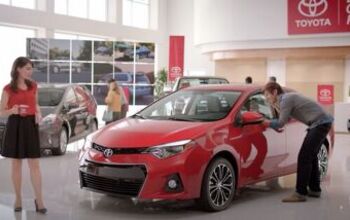
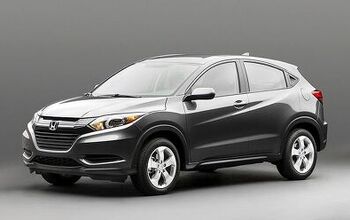
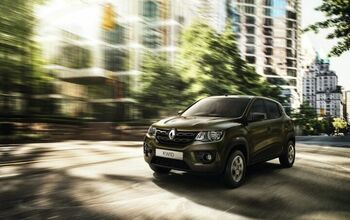
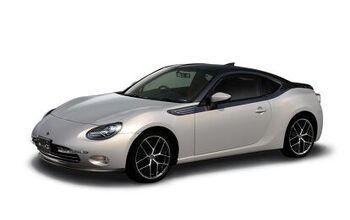
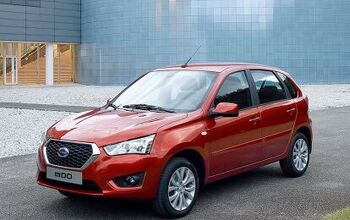

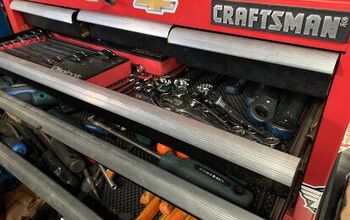


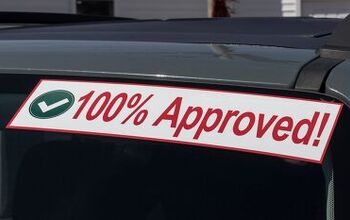

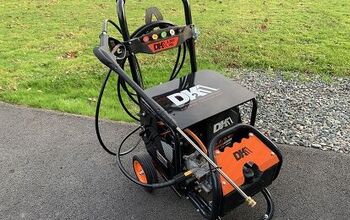



Comments
Join the conversation
Amen! For once in a long time, I don't feel alone on the topic of car prices. I've been a loyal VW owner for over 15 years for the exact reasons stated in the article. Today, I am finally looking at other manufacturers for my next car. Today, all these "packages" have me disgusted! Any stripped down model will have a host of “standard” features built in, and there “might” be one on the showroom ready for delivery. Everything else is the fatted calf promising monthly payments of $600 or more. Just 10 years ago, I could get a Jetta for around $13 to $15k. Today, I am forced to consider a $25k to $29k Jetta. My math calculates that's almost double the price - in just 10 years! Bluetooth, GPS, Satellite Radio, I don’t want any of it. I certainly don’t think those features worth adding $10k the cost of a car. As I travel hundreds of miles a week with my job, I’m in my car more than most. I should want every creature comfort imaginable, as I average over 5 hours per day just in my car. What I need the most is a dependable engine and performance. For those who like the non-essential fodder built in, consider that it’s enough to take a car into the shop for engine maintenance or performance repairs. All the other extras just add to the repair cost as well, but it’s your money. As for car manufactures (like VW), you lost your way. Remember the appeal of the old Beetle? Great price, simple mechanicals, and repair costs weren't frightening. Today's New Bettle - over 20k? 20k? These "packages" are as annoying as AOL or the Yahoo toolbar coming preinstalled in my PC. Even though it's free, I don't want it. What’s so bad about putting the fancy stuff on the Audi line, and leave the VW alone? There's the choice to have, but what has been forgotten is the choice to not have. Simply put, the Fahrvergnugen experience is but a nice memory. And I miss it.